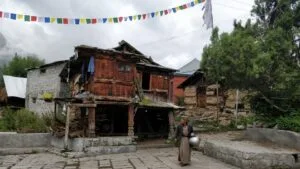Tommaso Tonet
Angelini, Damiano
Abstract/Description
The transition of food systems towards greater sustainability requires the participation of all actors, both institutional and civil. In mountain areas, this process is influenced by dynamics of depopulation, land abandonment, geographical isolation and unequally distributed or diffuse resources. This study focuses on Bergolo, a municipality, classified as mountainous and inner area, in the Alta Langa in the province of Cuneo, in Piedmont, analyzing an educational horticulture project of the New Wellness Education association. This initiative, which integrates permaculture, education and community participation, is included within the Erasmus+ Mobility project. This work aims to analyze on the one hand how these projects, through targeted funding, can integrate different cultures and knowledge with the aim of redeveloping the territory, strengthening human capital for the revitalization of mountain areas. On the other hand, it highlights the potential and critical issues of an initiative that aims to actively raise awareness of the sustainability of the food system. Specifically, it highlights the positive impacts, especially environmental and social, as well as economic, of the project, but also the difficulties and risks, especially social and with the local population, that this initiative entails in the context of Bergolo and Alta Langa.


